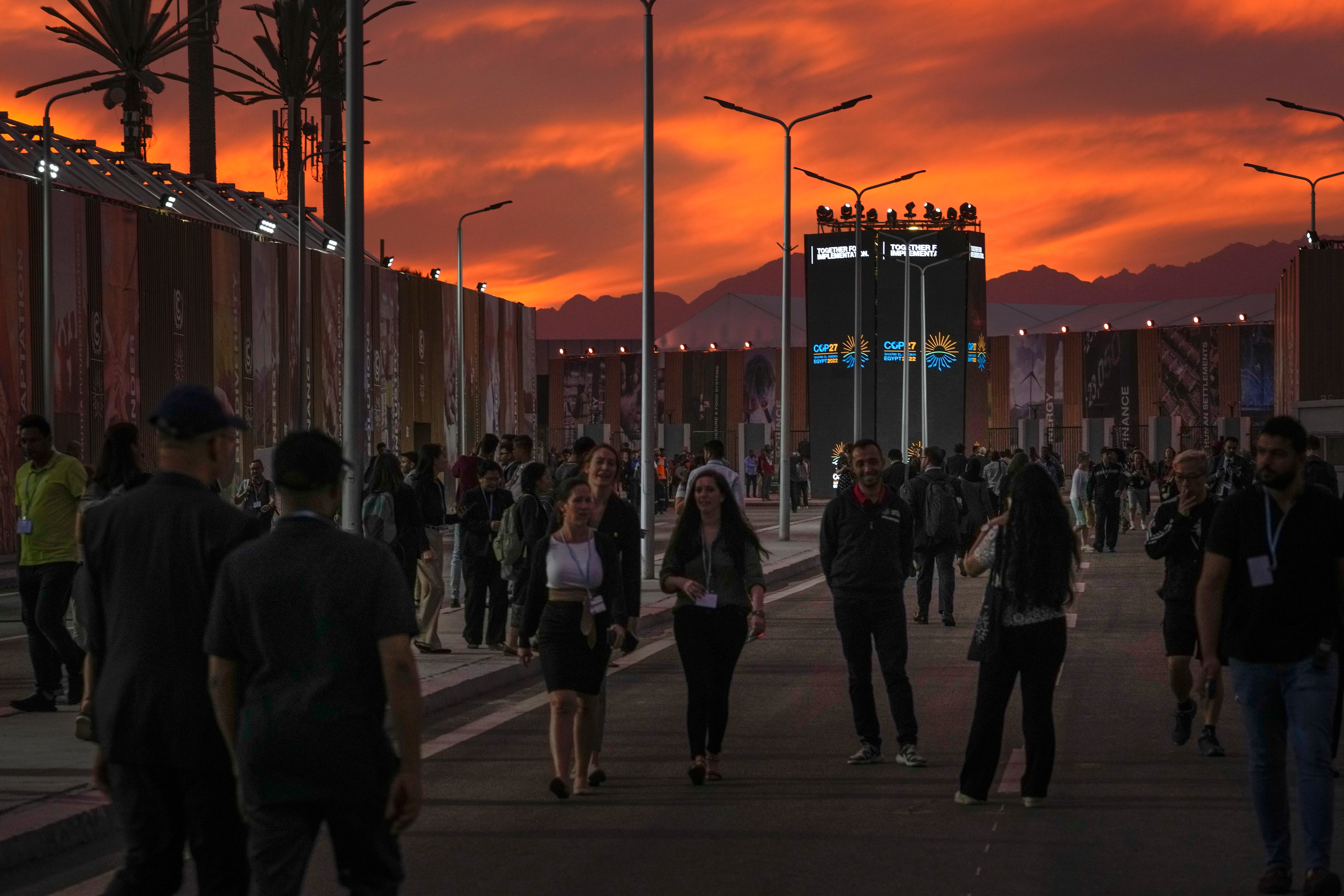What does a global population of 8 billion mean for the planet?
Analysis: the symbolic milestone comes as countries meet in Egypt to discuss reducing greenhouse gas emissions
The world population reached an estimated 8 billion people on Tuesday, raising questions about what this milestone means for the planet and our efforts to tackle the climate crisis.
The landmark comes as countries meet at the Cop27 summit in Egypt in a bid to make progress on reducing greenhouse gas emissions and efforts to better prepare for a warming planet.
The United Nations has said that population growth and GDP per capita remain the “strongest drivers” of greenhouse gas emissions from burning fossil fuels in the past decade.
And some point out that over the past 50 years, the world’s population has doubled, while global wildlife populations have plummeted by nearly 70 per cent.
Those who advocate slowing global population growth to help fight the climate crisis say growing populations will only make it more difficult for the world to reduce greenhouse gas emissions and limit biodiversity loss.
“The simple version is that the more people there are, the more we consume, and the more emissions and other waste that we produce,” said Alistair Currie, head of campaigns at UK-based charity Population Matters. Increased consumption leads to more demand for water and land and consequently impacts nature, he added.
The charity, which counts Sir David Attenborough and Dame Jane Goodall among its patrons, said in a recent report that in the past half-century, as the world’s population doubled, carbon emissions jumped from 17 billion tonnes per year in 1974 to 36 billion tonnes per year in 2021.
The charity says that while reducing excessive consumption is crucial, empowering women around the globe to choose to have smaller families combined with universal education for girls and tackling poverty will not only enhance individual life opportunities but help slow population growth, cut carbon emissions and limit global heating.
Others are unconvinced that population is the problem.
Bob Ward, of the Grantham Research Institute on Climate Change and the Environment at the London School of Economics, described slowing population growth as an “anti-human” argument.
“The problem is not the number of people,” he said. “The problem is the number of people who are leading unsustainable lifestyles.”
He added: “Even if you kept the population constant from now on but everybody adopted the lifestyle of the average American, we’d be completely screwed.”
Rich countries produce the vast majority of greenhouse gas emissions.
The G20 group of the world’s richest and largest developing nations, for example, is responsible for 80 per cent of the world’s GDP, and 80 per cent of the world’s greenhouse gas emissions.
Meanwhile, the African continent, where much of the population growth is found, finds itself on the frontline of the climate crisis while contributing less than 4 per cent of greenhouse gas emissions. Its population accounts for around 17 per cent of the world’s total.
“The environmental footprint of people in Africa, and in India, and the poorest parts of the world which have the largest-growing population is tiny – they’re not the ones who are responsible for the problems,” he said. “Telling African countries they shouldn’t have more people in them is basically unethical and analytically not correct.”
Mr Ward pointed to the fact that one of the biggest drivers of deforestation is farming livestock as an example of how the way in which we live is impacting planet Earth.
“It’s not about the number of mouths you’re feeding, it’s about what you’re putting in them,” he said.
Mr Currie agreed that the principal driver of emissions was the rich world and acknowledged concerns that when people talk about slowing population they’re talking about poorer countries in which population growth is higher but that contribute the least to emissions.
He also acknowledged that slowing population growth was not a quick fix and that there are a set of urgent actions, such as keeping fossil fuels in the ground, that needed to be done now.

But he argued that, in the long term, the world would ignore population growth at its peril.
“The more people we add, the more work each of our other mitigations has to do in order to be effective,” he said, adding that those in poorer countries should also rightly be developing and becoming more affluent, and would consequently contribute more to greenhouse gas emissions in the future.
The latest projections by the UN suggest that the world’s population could grow to around 8.5 billion in 2030 and 9.7 billion in 2050. It is projected to reach a peak of around 10.4 billion people during the 2080s, and to remain at that level until 2100. More than half of the projected increase in population up to 2050 is expected to happen in eight countries, five of which are in Africa, and three in Asia.
“We’re certainly not saying that population is a magic bullet that’s going to cure all our environmental problems,” Mr Currie said. “What we’re saying is if we’re not paying attention to population then it’s far, far more difficult to solve those problems and ultimately impossible.”
Mr Ward disagreed, arguing instead that the world needs to develop in a sustainable way.
In rich countries that means cutting waste and pollution, while in developing countries it means increasing people’s living standards without all the waste and polluting practices that we see in the West, he said.
The unfortunate thing about population growth in developing countries is that there will be more people exposed to the growing impacts of climate change, he added.
Join our commenting forum
Join thought-provoking conversations, follow other Independent readers and see their replies
Comments


Bookmark popover
Removed from bookmarks